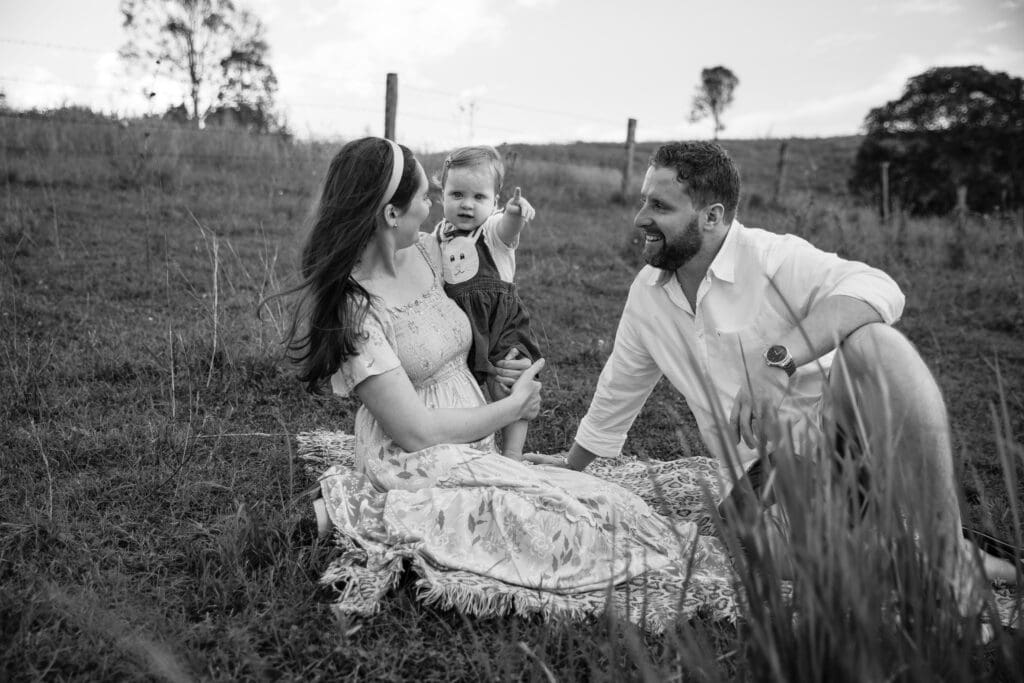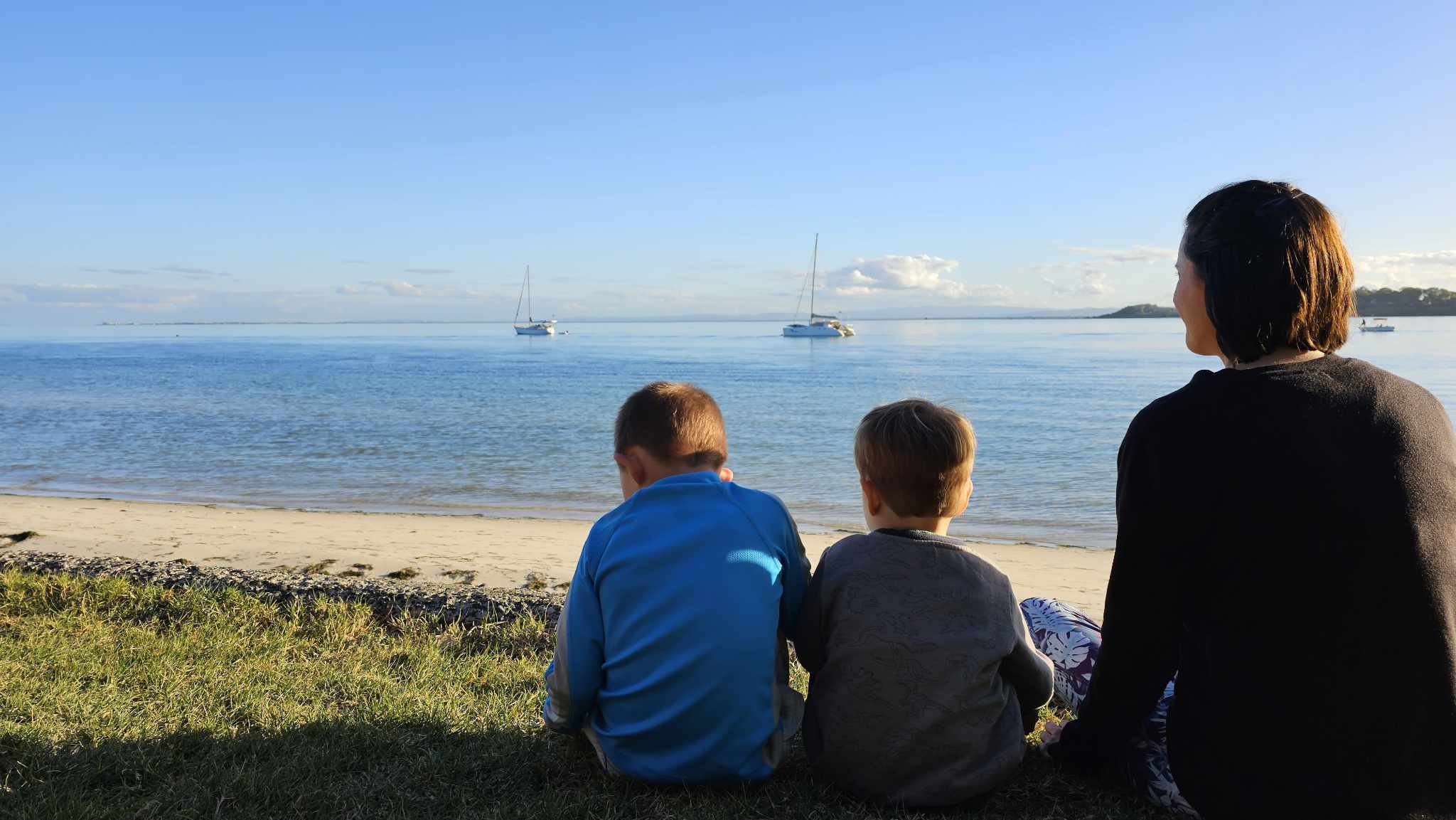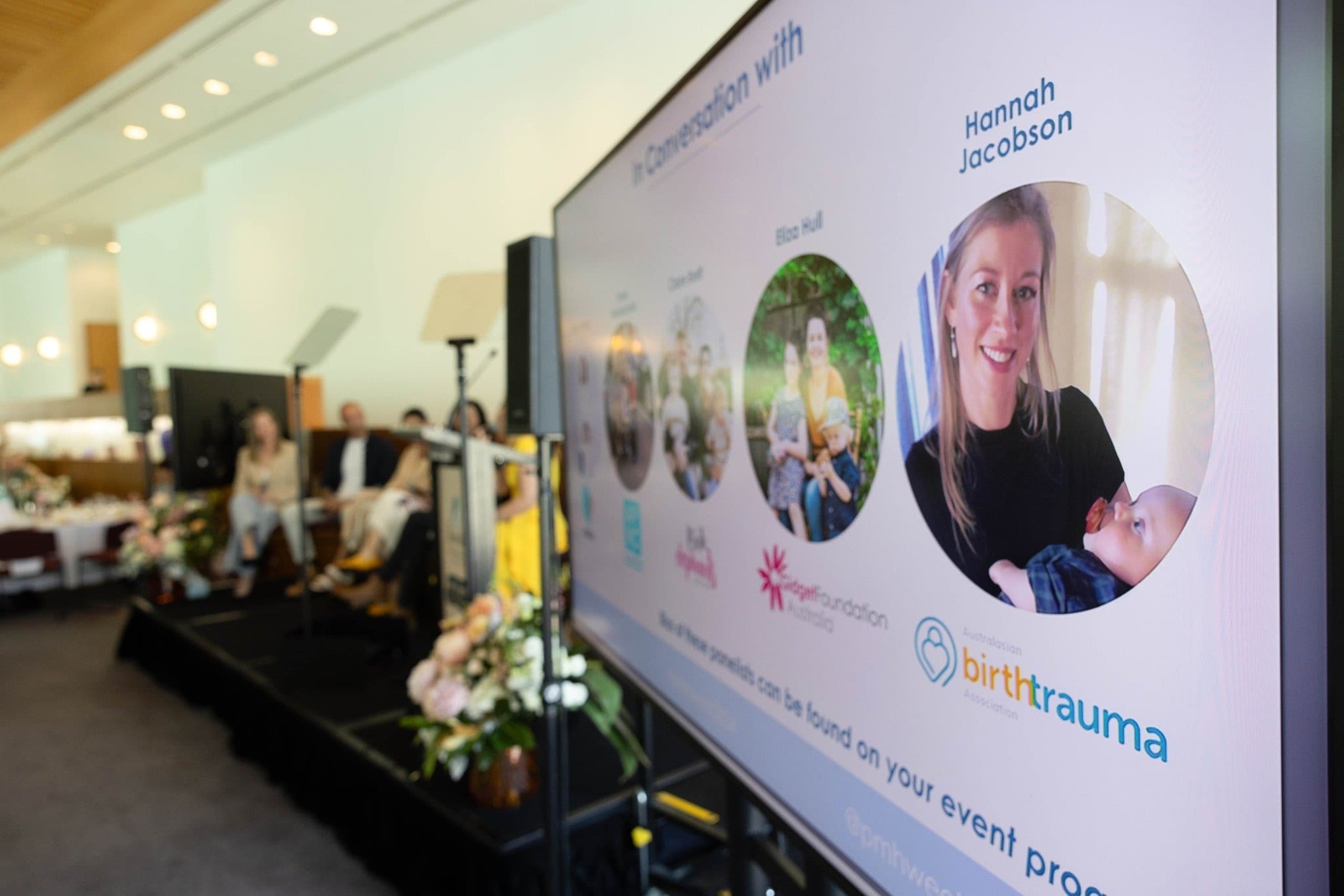Here I was, a content yet waddling and mildly tired (nearly) 42-week pregnant women. I had a trouble free and relaxed pregnancy, with a nicely growing baby. I remember attending a planned ‘post-dates’ appointment at 41 weeks and 3 days. I remember this so vividly because I recall saying to the midwife that I could happily plod along for another 2 weeks. Although I felt slow and only a little tired, I felt healthy, content and had big trust in my body to birth whenever it was ready.
Fast forward to two days later where I was feeling the pressure to have my waters broken and be induced. My gut and intuition were vehemently saying no but I ended up following through. The product of this saw me contracting naturally and on the syntocinon drip. Our baby’s heart rate skyrocketed and then plummeted numerous times which then lead to an emergency c-section.
I was at home sitting in my loungeroom less than 48 hours after giving birth and from that moment on I knew something wasn’t right. I was assured by my case midwife that this was normal as our hormones are changing and adjusting to life with our baby on the outside. Days went by and I felt like I was in a complete time warp, I struggled to grasp onto reality and while I was able to function and look after my daughter, I felt like I was falling into a deep hole. I was aware of postnatal depression and reached out to my case midwife and community nurse. Due to the demands on the hospital system, I was being constantly nudged to be discharged off the midwife program. I succumbed to the pressure and agreed to be discharged. With the increasing demands of a newborn and limited access to family support I was continuing to fall. I continued to reach out. I continued to ask family to come and stay, when possible. I spoke to the community nurse about how I was feeling, to my GP and organised a Mental Health Care Plan. I had a psychologist on board and was having regular phone appointments. During out of business hours I was calling Beyond Blue and the Australian Breastfeeding Association for additional support. I became a client of Tresillian’s and also called PANDA & Gidget but was unfortunately met with answering machines.
I was doing ‘all the right things’ and yet my calls for help were being overlooked. Things continued to spiral, and I lost the ability to sleep. On the first occasion, I had only managed to receive 3-4 hours’ sleep within a 48-hour period. I was significantly unwell and presented to my local hospital due to my frail situation. I was seen immediately and was given medication to help me sleep. Unfortunately, this medication wasn’t right for me and sent my nervous system and mental health into a deeper spiral. In the week and a half that followed I presented to the hospital (my local hospital and larger hospital which is 30 mins away) at least 4 times, with one of those times being in an ambulance. Unfortunately, the medical professionals didn’t take my pleas seriously and because I wasn’t suicidal sent me home again. On the first presentation to the larger regional hospital I was met by a young emergency registrar who said to me “What do you expect us to do, it is 4am in the morning. All our mental health care team are gone. We can’t do anything for you.” This statement that was presented to me, left my heart shattered. I thought to myself ‘I am in crisis! Our hospital system should be here for us whenever we need it.’ I was sent home again after this presentation and told to access all the services I had been accessing and to seek family support. My family were doing as much as they could humanly do, but my condition was well out of their control.
Knowing that the hospital and medical system couldn’t provide further support, the external services which I had been seeking was no longer helping and knowing that my condition was out of control, sent me on a path to 72 hours of no sleep and the beginning of postpartum psychosis. I was frightened, and I was 12-24hrs away from committing suicide. I had no choice but to go back to hospital. It was the last place I wanted to go, but nowhere seemed safe to me anymore. I pleaded with the hospital staff not to send me home. I was FINALLY listened to. I remained in my local hospital for the entire day and then had family drive me 30mins to the larger hospital nearby where I was finally seen by the mental health care team. That was the beginning of my recovery. Thank goodness for the staff in the mental health unit for their reassurance and genuine care.
During my time of critical need, I was continually asking both hospital staff, Beyond Blue, my GP and Tresillian about a Mother and Baby Unit (MBU) that I could be referred to or seen to for acute care. I was repeatedly told that there was nothing or no one in this area that could help. Knowing this, contributed to the decline in my condition. I knew there was no one who would deeply understand my condition and have the right services or tools to assist in my recovery. I have never felt so alone and helpless.
RECOVERY & ADVOCACY
Since recovering, I have been fiercely advocating for improved perinatal services, funding and education for women in rural, regional and remote NSW. There is a lot to be learned from my experience as there is for other rural, regional and remote women’s stories. Yet, increasing awareness and reducing the stigma is not enough. It is about timely action, investment and understanding. I am committed to ensuring my story is MORE than just a story and is witness to critical change.
If you or a love one need support, there is help available.




